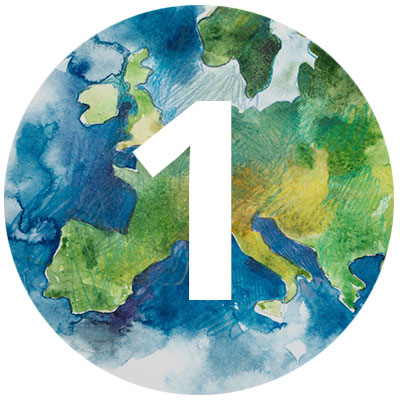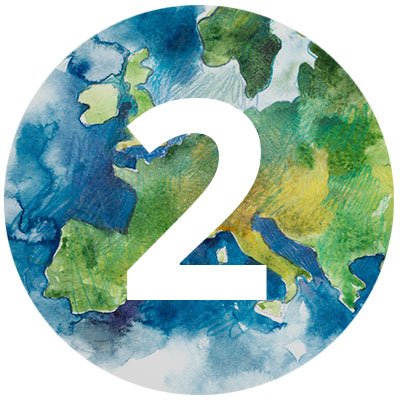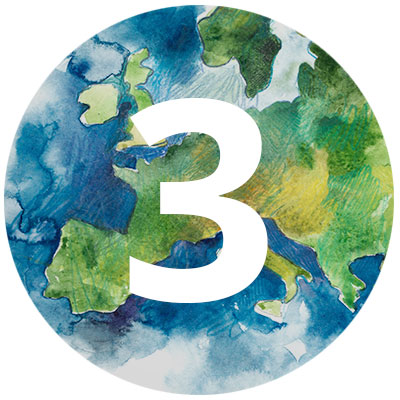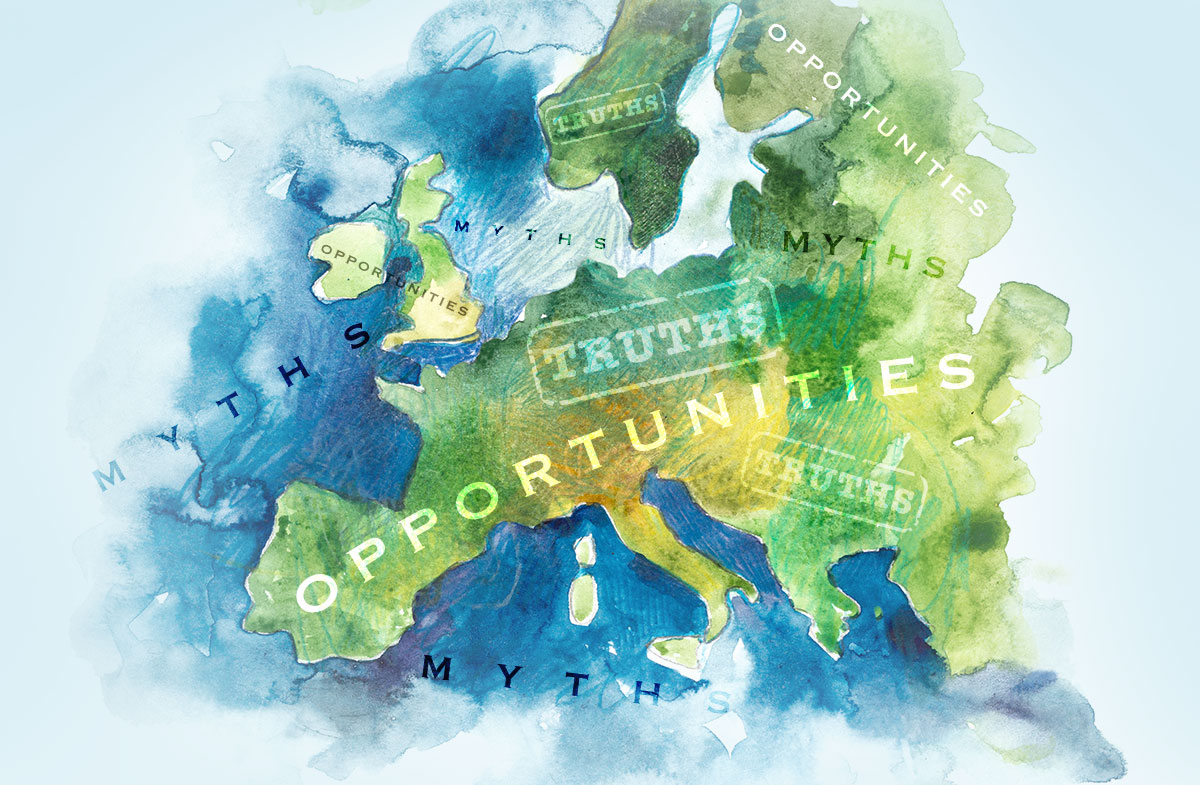We must treat Europe as we do every other missionary context.
Viewed from the outside, European countries appear to have a lot in common: a shared history of wars, alliances, and trade that have served to divide and unite them; a broader cultural exchange that has extended over a period of more than two thousand years; and a certain European mindset, worldview, or ‘spirit’.
Yet there is also extraordinary diversity between the regions of Europe, between one country and the next, between regions within the same country, and even between districts of the same city. That is why, when it comes to Christian mission, we must treat Europe as we do every other missionary context. We must work to understand the local culture if we are serious about genuinely communicating and incarnating the gospel of Jesus.
Three Myths about Europe
Europeans and non-Europeans often make huge assumptions about the spiritual condition of Europe. I argue that there are three common myths about Europe.

Myth #1: Europe is Christian.
The first myth is that Europe is still ‘the Christian Continent’. This idea is supported by the visible impression of crosses and churches everywhere you go. Crosses still feature on the flags of more than a dozen countries and territories of Europe.
It goes without saying that the impact of Christianity on European culture is huge and, as historian Tom Holland’s recent book Dominion: The Making of the Western Mind has compellingly argued, Christianity has an enduring impact on everything from our concepts of law and human rights to even secularism itself. Muslims certainly see Europe as Christian, as do many Christians from the Majority World whose churches were founded by European missionaries, until they visit and soon realise this is far from true.
Data from the most recent edition of the European Values Survey (EVS 2017-20) indicates that 61% of Swedes, 53% of Dutch, 51% of Brits and Norwegians, and 50% of Czechs say they do not believe in God. When it comes to church attendance, only one in twenty Swedes, Norwegians, and Finns are in church on a given Sunday, and one in forty Danes. 63% of French, 61% of Czechs, and 60% of Britons never attend a religious service.
It has taken over three hundred years, but gradually Europe has been transformed, as philosopher Charles Taylor puts it in A Secular Age, ‘from a society where belief in God (was) unchallenged and, indeed, unproblematic, to one in which it is understood to be one option among others, and frequently not the easiest to embrace.’

Myth #2: Europe is atheist.
The second myth is that Europe has been so completely secularised that most Europeans are practically atheist: they live as if God does not exist.
Certainly this view is supported by the popularity in the media of celebrity atheists like Richard Dawkins who argue that religion is not just delusional but dangerous. And curiously, many missionaries from the Majority World seem to have accepted this myth as true, as they too proclaim that they are going to take the gospel back to the secular continent.
But this too is a myth. With the exceptions of France (23%) and Sweden (19%), in every other European country less than 15% of the population declares themselves to be ‘a convinced atheist’. Even in the most secular countries, around one in every six or seven people pray at least once a week: Czechia (15.1%), Sweden (15.7%) and Denmark (13.5%).
Moreover, studies have shown that Christianity is still the dominant religious ‘identity’ of most Europeans. It may be a cultural or nominal Christianity, but the idea that all Europeans are atheists is simply not supported by the data. It is a myth.

Myth #3: Europe is post-Christian.
The third myth is that Europe is now thoroughly post-Christian.
For many in the media, this is their operating assumption: that Europe has moved on from its singular Christian heritage and has now become thoroughly pluralist in regard to religion and increasingly areligious as more and more people self-identify as ‘nones’, that is, when asked their religion in questionnaires, they simply respond ‘none of the above’. They have no religion.
Yet they are not the only ones to argue that Europe is post-Christian. Over the last thirty years Christian missiologists like Alan Hirsch and Michael Frost in The Shaping of Things to Come and Stuart Murray in Post-Christendom have argued that, rather than lamenting the demise of institutional forms of church, we should celebrate the end of historical Christendom and all the abuses of power, wealth, and prestige that are associated with it. They argue that the church in Europe would do well to leave behind forms of church from the Christendom of old and adopt more ‘missional’ ones that don’t depend on attractional gatherings in traditional church buildings.
Both secular journalists and post-Christian missiologists are too keen to write off what God is doing in established churches and perhaps too slow to appreciate that, out of the spotlight, an extraordinary re-evangelisation of Europe is taking place
Both secular journalists and post-Christian missiologists are too keen to write off what God is doing in established churches and perhaps too slow to appreciate that, out of the spotlight, an extraordinary re-evangelisation of Europe is taking place.
Three dimensions of this re-evangelisation can be identified. Firstly, dynamic national church-planting platforms have emerged in more than half of the nations of Europe. Secondly, revival and discipleship movements among the younger generations are exploring creative ways to reach out to Europe’s secularised youth.
And thirdly, the issue I will focus on in the remainder of this article: the migration to Europe of millions of Majority World Christians over the last 50 years. This new spiritual reality is an outright challenge to the myth of post-Christian Europe. As a friend of mine often says: Europe is not post-Christian—it is pre-revival.
Challenges and Opportunities of Diaspora Churches in Europe
As he has done throughout history, God is using people on the move to re-evangelise the continent of Europe.
Over the last thirty years, Latin-American migrants have planted hundreds of churches in Spain, Portugal, and beyond. It is difficult to find a major European city that does not have a large Spanish-speaking and/or Brazilian congregation.
Asian Christians have also planted churches wherever they have migrated. According to The Chinese Overseas Christian Mission there are 347 Chinese churches in Europe: 167 in the UK, 31 in Italy, 28 in Spain, 27 in France, and 23 in Germany. Their list of churches includes at least one congregation in 22 different European countries. That is only a fraction of the total, and that is just the Chinese. Koreans, Filipinos, Tamils, and many others have been no less industrious.
However, it is the Black African churches that are the most numerous. African-initiated Pentecostal churches number in the thousands in Britain alone. Harvey Kwiyani has written that the Redeemed Christian Church of God has over 750 congregations today and continues to plant 25 new churches in Britain every year. If a European city has a significant African population, there will almost certainly be an African diaspora church, even if the local Christians are not aware of it.
God is using people on the move to re-evangelise the continent of Europe.
This new reality is a huge opportunity for Europe, yet it is also huge challenge. For we cannot escape the uncomfortable truth that the presence of thousands of Majority World churches in Europe isn’t having anything like the impact it should, because so many of the church leaders are not able or willing to adapt their churches to the culture and context. As one Chinese church leader put it to me recently: ‘The Chinese diaspora churches are like beautiful flowers that have been planted in European soil, but they have forgotten to remove the pot.’
The communication of the Christian gospel through history has always involved translation into the vernacular. Therefore, as Lamin Sanneh compellingly argued in Translating the Message, in every situation the gospel must find its own voice within the host culture. That was true when the gospel was taken from Europe to the Majority World and it is just as true today as that flow is reversed. But this is not only a challenge for diaspora churches. Similarly, European church leaders have not wanted or not known how to help diaspora Christians reach the local population.
Both parts of the church in Europe, diaspora churches and indigenous European churches, must do more to build bridges of communication and collaboration. As I put it elsewhere, “the future of the church in Europe may well depend on the emergence of a truly European Intercultural Christianity.”
The Vision of Lausanne Europe
Collaboration in mission is God’s will for his people. The New Testament letters are filled with evidence for that. And that is why Lausanne Europe exists: to fire, foster, and facilitate collaboration in God’s mission in Europe; to fire up a vision of what is possible if we work together; to foster leaders, men and women, young and not-so-young, native Europeans and new Europeans, those who minister in churches and those who minister in the world of work, to collaborate together; and to facilitate collaborative initiatives that ‘bear witness to Jesus Christ and all his teachings in every nation, in every sphere of society, and in the realm of ideas’ (CTC).
Collaboration in mission is God’s will for his people.
The task is enormous, but Lausanne Europe has a part to play in encouraging connections and collaboration between all those who are seeking to share the gospel with this generation of Europeans.
Note: A fuller explanation of the topics in this article can be found in the Europe 2021 report.

